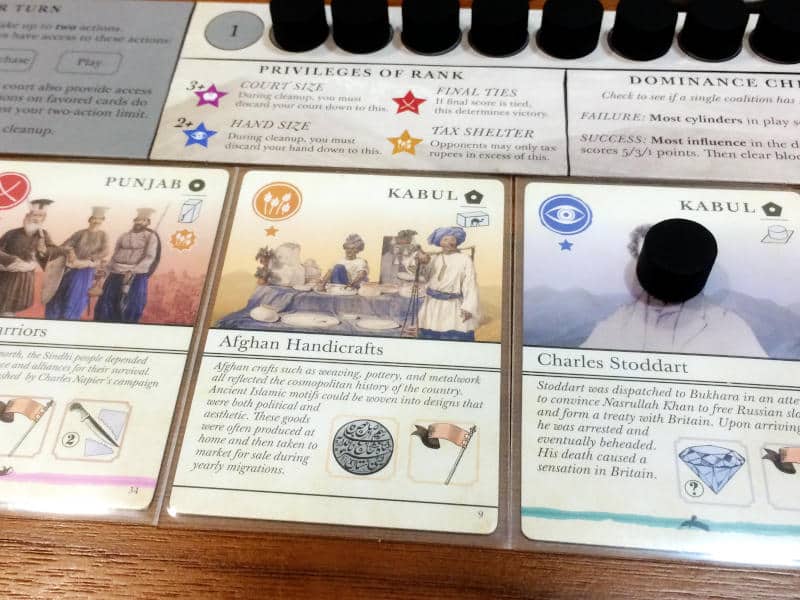I think board games aren’t just entertainment. They’re not just a way to spend time with friends or family, or even alone. I think board games can be thought-provoking. They can tease our interest in a topic that we want to investigate further. Some board games can even carry an important message that is shared as we play them. These are games that I have always felt drawn to. This article is an ode to them.
Listen to the Audio Version
Intro Music: Bomber (Sting) by Riot (https://www.
Music: “Dashed Ambitions” provided by mobygratis.
Music: “Cartilage” provided by mobygratis.
Music: “Bird Meets Dog” provided by mobygratis.
Quiet Games and Forgettable Ones
There is a difference between a quiet game and a forgettable one. Some games speak softly but still carry weight. Others barely whisper, and when they do, they only repeat things I’ve heard before, offering me no new perspectives or challenging me intellectually.
While the latter are still of interest to me, I play them for entertainment or as a way to step away from the routines and pressures of day-to-day life. They are great games that are perfectly suited for relaxed afternoons, casual gatherings, or filling a gap between more demanding experiences. However, while these games are easy to recommend to others, they don’t leave an impression that remains even after I have put them away – and that’s not their purpose.
I don’t want to downplay the importance of these games. They certainly have their place in any collection and are usually among the most popular titles for a reason. These are the games I reach for most often, the ones that reliably provide fun for me and the people I play with. However, they really only fill a timeslot, space on a shelf, or satisfy a social need. They offer laughter, companionship, and shared experiences, all of which are valuable outcomes in their own right.
Yet, they rarely demand engagement, other than the actions you take within the game. I might play them many times and enjoy doing so, but they rarely spark the kind of intellectual curiosity or emotional resonance that makes a game unforgettable. but I will happily and proudly review them.
They might take up a special place in my heart, but not in my soul.

Board Games With a Message
Games that fill my soul are those that deal with real people, real systems, or real struggles, that make me wrestle with ethical dilemmas, revisit history or otherwise encourage me to do further research into a topic that I might otherwise have never considered. These games don’t even have to have high-quality components or beautiful illustrations, as long as their design brings out their message with a clear voice. When a game takes the past seriously and approaches it with sensitivity, I will happily listen to what it has to say.
One of the finest examples I can think of is Pax Pamir: Second Edition. Set in nineteenth-century Afghanistan during the period known as The Great Game, it places you in the role of a local leader navigating shifting alliances between imperial powers and regional factions. The game’s mechanisms are tightly interwoven with its theme. Every card depicts a real person, event, or location, and every decision feels steeped in political tension. Players have to constantly reassess their loyalties, mirroring the unstable political climate of the era. It does not simply tell you a story, but it puts you right in the middle of history.
There are other games that try to do something similar, but I’ve not been able to play them yet.
Weimar: The Fight for Democracy is set in a volatile period in European history, inviting players to explore ideas around power, division, and ideology. Wir Sind Das Volk! emulates how the Wall between East and West Germany created asymmetries in both play and meaning. Carolingi asks players to step into the complex politics of succession in early medieval Europe, while Sammu-Ramat invites reflection on gender, governance, and legacy. Kartini centres on women’s education in Indonesia in a way that feels fresh and heartfelt.

Making Space for Meaning
These games aren’t educational tools, but neither are they empty simulations. They feel like they want to provide arguments or ask questions left open. They encourage players to find out more for themselves and make up their own minds. All of these games not only deal with real, historic events, but also tell a story and convey a message, without forcing players down a specific route. They are more like a guide that steers players through the past, allowing them to come up with their own conclusions.
I want to make space for meaning in my reviews. In fact, there is already a lot of meaning in them. Writing board game reviews is something quite personal. It’s me opening up to the reader and laying bare part of my feelings. I include my own context, my own interests, and my own values. When I review something like Pax Pamir, I am not only engaging with a clever historical simulation, but I am also thinking about what it means to play politics. When I finally get around to playing and then reviewing Wir Sind Das Volk!, I will be including my own history. I will be looking at the game as someone who lived in West Berlin and saw the Wall come down.
That does not mean every game I write about has to carry a message. For me, a wide variety of games are worth writing about. However, when a game has a message and wants to provoke thought, I want to have a conversation with it and with the players at the table. I want to hear their thoughts and ideals. Those are the games that make me take note. Those are the ones I am drawn to, and they are the ones I want to write about more.
This blog is free for everyone, but if you'd like to support it, here are some options.
Useful Links
- Pax Pamir: Second Edition review: https://tabletopgamesblog.
com/ 2022/ 08/ 27/ pax-pamir-second-edition-saturday-review/
Audio Version
Intro Music: Bomber (Sting) by Riot (https://www.
Music: “Dashed Ambitions” provided by mobygratis.
Music: “Cartilage” provided by mobygratis.
Music: “Bird Meets Dog” provided by mobygratis.
Playlist
These are the songs I listened to while I was writing this topic discussion article:


